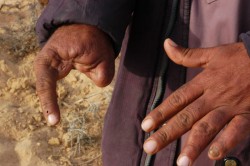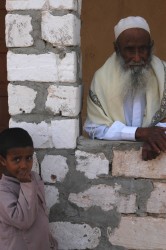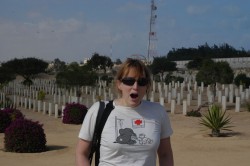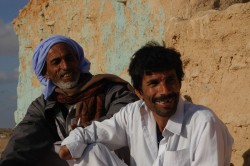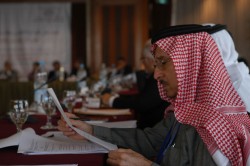Sun 1 Jan 2006
New Years in Cairo
Posted by Mary under Egypt, ICBL
No Comments
We returned to Cairo at about 10pm on New Year’s Eve, changed, and went to the mall for a uniquely Arab experience. Recently in every country I’ve visited from the Middle East (Bahrain, UAE), we’ve done the same thing for leisure – headed to the shopping mall. Hordes of kids clustered in groups according to gender were roaming around and, at 11pm, all the shops remained open. We met some friends of Ayman’s at a Lebanese restaurant in the mall, where we ate a great dinner and smoked shisha to celebrate the new year.
On the way back to the hotel we stopped by the park where the night before police had killed some 26 protestors from Sudan. The demonstrators had set up camp in the park a couple of weeks earlier because it was located opposite the Cairo offices of the UN High Commission for Refugees (UNHCR). They were protesting a decrease in the benefits paid out by UNHCR as the organization attempted to convince them to return to Sudan following the peace deal with the south. Without warning the Egyptian police moved in to clear the park, killing 20 protestors in the process and receiving widespread international media attention.
As we looked on, a lot of police were still in the park clearing it of clothing and other materials left behind by the demonstrators. A plain clothed officer told us off for trying to take photos and we got out of there. I’ve read enough HRW reports to know that you don’t wanna mess with the Egyptian police and especially don’t want to end up in an Egyptian jail.
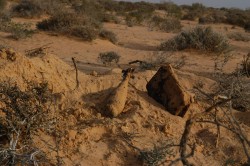
After a few hours sleep Ayman dropped me at the airport and 12 hours later I made it home to my apartment (and a hungry cat!). I realized I had spent just 5 full days on the ground in Egypt, a tiny amount of time. No shopping or sightseeing either. The pyramids and other sights have been there for thousands of years and will remain so in’shallah. I can return another time to do the tourist thing. I’m just glad I got to have the experience I did and grateful to Ayman for showing me a side of Egypt I probably would have never gotten to see without him.
Some links: http://www.mech.uwa.edu.au/jpt/demining/countries/egypt/JPT_NOTES/egypt.html
